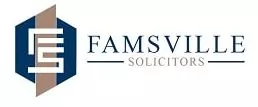INTRODUCTION
The Finance Bill 2020 was assented by President Muhammadu Buhari on December 31, 2020, and came into force on January 1, 2021. The Finance Act (the ''Act'') marks the first significant overhaul of Nigeria's fiscal system in 20 years. The Act aims at improving the Nigerian tax environment and thus promote uniformity in line with global best practices. Such uniformity creates an environment to actualise ''the Ease of Doing Business Initiative'' of the Federal Government of Nigeria. It further cures the incidence of multiple taxation that exists under our tax framework.
The Act amends tax and non-tax legislation in Nigeria such as the Capital Gains Tax Act, (''CGTA''), Companies Income Tax Act, (''CITA''), Personal Income Tax Act (''PITA''), Value Added Tax Act, (''VAT''), Nigeria Export Processing Zones Act, Oil and Gas Export Free Zone Act, Industrial Development (Income Tax Relief) Act, Stamp Duties Act, Tertiary Education Trust Fund (Establishment) Act, Federal Inland Revenue Service (Establishment) Act, Fiscal Responsibility Act, Public Procurement Act and Companies and Allied Matters Act.
This article highlights significant changes and implications that have been introduced by the Act.
SIGNIFICANT CHANGES INTRODUCED BY THE FINANCE ACT
The Act brought sweeping changes to Nigeria's tax and regulatory landscape and lays to rest any confusion regarding the Finance Act 2019. Some of the changes introduced by the Act are as follows:
Compensation for loss of office
The Act provides that the sums obtained by way of compensation for loss of office up to a maximum of N10,000,000.00 (Ten Million Naira) are exempted from Capital Gains Tax ('CGT'). However, sums above N10,000,000,.00 (Ten Million Naira) are subject to tax accordingly.1 More so, the tax deducted shall be remitted within the time specified under the Pay-As-You-Earn (PAYE) Regulations issued pursuant to the Personal Income Tax Act ('PITA').2 The effect is that employers now must deduct CGT when they make redundancy payments, and other similar payments, to existing employees.
Reduction of the minimum tax rate for the 2020 year of assessment
The minimum tax payable for companies in respect of returns for any year of assessments due between 1 January 2020 and 31 December 2021 has been reduced from 0.5% to 0.25% of gross turnover of the company less franked investment income.3
Deductibility of COVID-19 donations
The donations made by companies in cash or in-kind to any fund set up by the Federal Government or State Government, or to any agency designated by the Federal Government, or to any similar fund or purpose in consultation to any Ministry, Department or Agency of the Federal Government, in respect of any pandemic, natural disaster or other exigencies shall be tax-deductible and thus subject to a maximum of 10% of assessable profits after deductions of other allowable donations made by the company.4
Tax return
The Act provides that where a company deliberately and by a dishonest act fails to accurately declare the correct amount of its profit or payable tax, a penalty and interest on the outstanding tax shall accrue from the date of the incorrect tax return.5 Furthermore, the FIRS may by notice prescribe the form of account to be included in a tax return other than an audited financial statement for small and medium companies as defined under the Companies Income Tax Act ('CITA').6 It is worth noting that the company in this regard is a company other than a Nigerian company that derives profit from or is taxable in Nigeria under Section 13 of CITA.
Service of Notice of Assessment and Objections
Notice of assessment and objections as provided under CITA may be served via courier service, email, or other electronic means as may be directed by the FIRS in a notice.7
Public character
With regards to tax exemption, CITA defines "public character" to mean an organisation or institution which must be registered in accordance with relevant laws in Nigeria and does not distribute or share its profit in any manner to members or promoters.8
Pioneer Status for Agribusiness SMEs
A small or medium-sized company engaged in primary agricultural production shall be granted Pioneer status for an initial period of 4 years and an additional 2 years (total of 6 years) following an application by the company to the President, through the Minister of Industry, Trade and Investment. It is worth noting that the extension of 2 (two) years is subject to the satisfactory performance of such agricultural production and such company cannot be granted a similar tax holiday incentive under any other Act in force in Nigeria.9
Gross income
With regards to personal relief purposes, PITA redefined "gross income" as income from all sources less non-taxable income, income on which no further tax is payable, tax-exempt items listed in paragraph 2 of the Sixth Schedule, and in the case of an enterprise, less all allowable business expenses and capital allowance.10
Exemption from Payment of Minimum Tax
Low-income earners who earn the National Minimum Wage or less are exempted from Personal Income Tax.11
Goods liable to excise duties
The goods liable to excise duties (both imported and manufactured in Nigeria) have been expanded to include telecommunication services provided in Nigeria as may be prescribed in the law or an order issued by the President.12
Reduction on import duty
Import duties have been reduced on tractors from 35% to 10%; Mass Transits Motor Vehicles for transport of more than 10 persons from 35% to 10%; Motor Vehicles for the Transport of goods from 35% to 10% and import levy on Motor Vehicles for the transport of persons from 35% to 5%.13
Taxable Supply - Goods, Services and Incorporeal
With respect to goods, 'taxable supply' is defined to include where the goods are physically present in Nigeria Ìat the time of supply, imported into Nigeria, assembled in Nigeria, installed in Nigeria or where the beneficial owner of the right in or over the goods is a taxable person in Nigeria and the goods or right is situated, registered or exercisable in Nigeria.
For services, 'taxable supply' is defined to include where the service is rendered by a person physically present in Nigeria at the time of providing the service, or where the service is consumed by a person in Nigeria regardless of whether the service is rendered within or outside Nigeria. It also covers situations whether or not the legal or contractual obligation to render such service rest on the person within or outside Nigeria, or the service is connected with existing immovable property (including the services of agents, experts, engineers, architects, valuers, etc.) where the property is located in Nigeria.
For an incorporeal, 'taxable supply' extends to where the exploitation of the right is made by a person in Nigeria, and the right is registered in Nigeria, assigned to or acquired by a person in Nigeria, regardless of whether the payment for its exploitation is made within or outside Nigeria, or the incorporeal is connected with a tangible or immovable asset located in Nigeria.14
Increase in Value Added Tax
The rate of VAT has been increased from 5% to 7.5%. The rate shall be computed from February 1, 2020.15 The increase is justified by the fact that the 5% rate is one of the lowest in the world and the new increase would help in the funding of the new minimum wage which was recently increased by the Federal Government. The increase would most certainly broaden revenue collection to fund the budget and reduce the budget deficit; it poses the challenge of inflation in the cost of goods and services and a decrease in disposable income of the general public.
Registration by non-resident companies
A non-resident person that makes a taxable supply to Nigeria is required to register for tax and obtain a Tax Identification Number ('TIN'), include VAT on its invoice, and may appoint a representative in Nigeria for its tax obligations. The FIRS may issue guidelines to give effect to this section.16
Electronic Money Transfer Levy
Electronic bank transfer which are transactions liable to stamp duty has been deleted and thus, replaced with an Electronic Money Transfer Levy (''EMTL'') of N50 (Fifty Naira) on electronic transfer for money deposited in any bank or financial institution on any account in the sum of N10,000 (Ten thousand Naira) or more has been introduced. The revenue accrued from EMTL shall be distributed based on derivation: 15% to the Federal Government and the Federal Capital Territory, and 85% to the State Governments.17
Tax refund
The Act mandates that for tax refund purposes, the Accountant-General of the Federation shall open a dedicated account for each tax-type for the payment of tax refunds. The account shall be administered by the FIRS and funded based on annual budgets for tax refund as may be approved by the National Assembly.18
New Filing Requirement for Free Zone Entities
Companies operating in the Free Trade Zones are exempted from taxes. However, such exemption is subject to the tax filing and returns obligation of the FIRS provided under Section 55(1) of CITA. In the event of default to comply, all the penalties prescribed in CITA and FIRS Act may apply to the companies.19
Right of Shareholders to Claim for Dividend
For private companies, where dividends have remained unclaimed after 12 years, the profits are to be included in the distributed profits to other shareholders of the company. For public companies quoted on the Nigerian Stock Exchange, unclaimed dividend or unutilised for not less than 6 (six) years from the date of declaring the dividend is to be transferred to the Unclaimed Funds Trust Fund. 20
Establishment of Crisis Intervention Fund and Unclaimed Funds Trust Fund
The Act establishes a Crisis Intervention Fund of N500,000,000,000.00 (Five Hundred Billion Naira) or other sums as may be approved by the National Assembly21 and establishes by way of a trust, as a sub-fund of the Crisis Intervention Fund, called the Unclaimed Funds Trust Fund.22
TRANSPORTATION AND AVIATION SECTOR INCENTIVES
Duty-Free Importation of Aircraft
Airlines registered in Nigeria and providing commercial air transport services are now entitled to duty-free importation of their aircraft and components whether purchased or leased.23
VAT exemption
Commercial airline tickets issued, sold and registered in Nigeria are exempted from VAT. Also, hire, rental or lease of tractors, ploughs, or other agricultural equipment for agricultural purposes are exempted from VAT.24
Taxation of the income of NRCs engaged in shipping or air transport in Nigeria
The Act makes it clear that Section 14 of CITA (on the taxation of the income of NRCs engaged in shipping or air transport in Nigeria) doesn't apply to income obtained from containers, leasing, non-freight operations or any incidental income of NRCs that are otherwise liable to tax in Nigeria.25
CONCLUSION
The Act has introduced several changes to the regulatory and tax landscape in Nigeria - particularly the tax obligations of private individuals, SMEs and corporate entities. As such, to benefit from the incentives introduced across several sectors, it's important to seek legal advice as it may apply to you.
Footnotes
1 Section 4 of the Act
2 Section 4 of the Act
3 Section 13 of the Act
4 Section 11 of the Act
5 Section 15 of the Act
6 Section 16 of the Act
7 Section 18 of the Act
8 Section 21 of the Act
9 Section 23 of the Act
10 Section 29 of the Act
11 Section 30 of the Act
12 Section 37 of the Act
13 Section 38 of the Act
14 Section 40 of the Act
15 Section 42 of the Act
16 Section 43 of the Act
17 Section 48 of the Act
18 Section 50 of the Act
19 Section 58 and 59 of the Act
20 Section 60 of the Act
21 Section 75 of the Act
22 Section 77(1) of the Act
23 Section 39 of the Act
24 Section 45 of the Act
25 Section 8 of the Act
The content of this article is intended to provide a general guide to the subject matter. Specialist advice should be sought about your specific circumstances.


